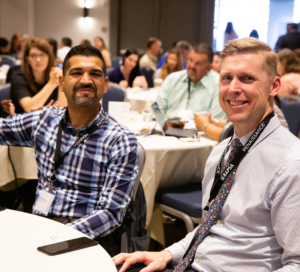Alternative Accountability in Practice
RAPSA Forum 2020
RAPSA’s Forums provide up to date information about progress on meaningful accountability policies for schools serving at-promise students. As states increasingly adopt alternative accountability policies, school leaders are challenged to design systems and pedagogies that put alternative accountability in practice. This year’s Forum includes 9 sessions with perspectives by leading experts from California, Colorado, Massachusetts, New York, Oregon, Texas and Utah.
From NY to LA, New Goals for New Times
- David Frank(Speaker)New York State Education Department, Executive Director, Charter School Office
- Kari Croft(Speaker)Da Vinci RISE High School
- Delia Castillo(Speaker)Los Angeles County Office of Education
- Naomi DeVeaux(Moderator)National Charter Schools Institute, Vice President of Authorizing & Accountability
Transforming Systems of Single Best Practices to Equity
The Every Student Succeeds Act (ESSA) has endorsed several initiatives to ensure equitable access and outcomes for all students. Many schools and districts practice these initiatives in silos which certainly creates equity and access for some students, however, in order to promote equity and access for all students, schools and districts can commit to implementing Quantum Ten (Q10), a new framework that integrates multiple frameworks, practices and theories. Q10 promotes equity in education for all.
- Dr. Talisa Sullivan(Speaker)Transformational Leadership Consulting "TLC" Services
- Dr. Anne Marie Ristow(Speaker)USF, Student Support and Academic Achievement Coordinator
